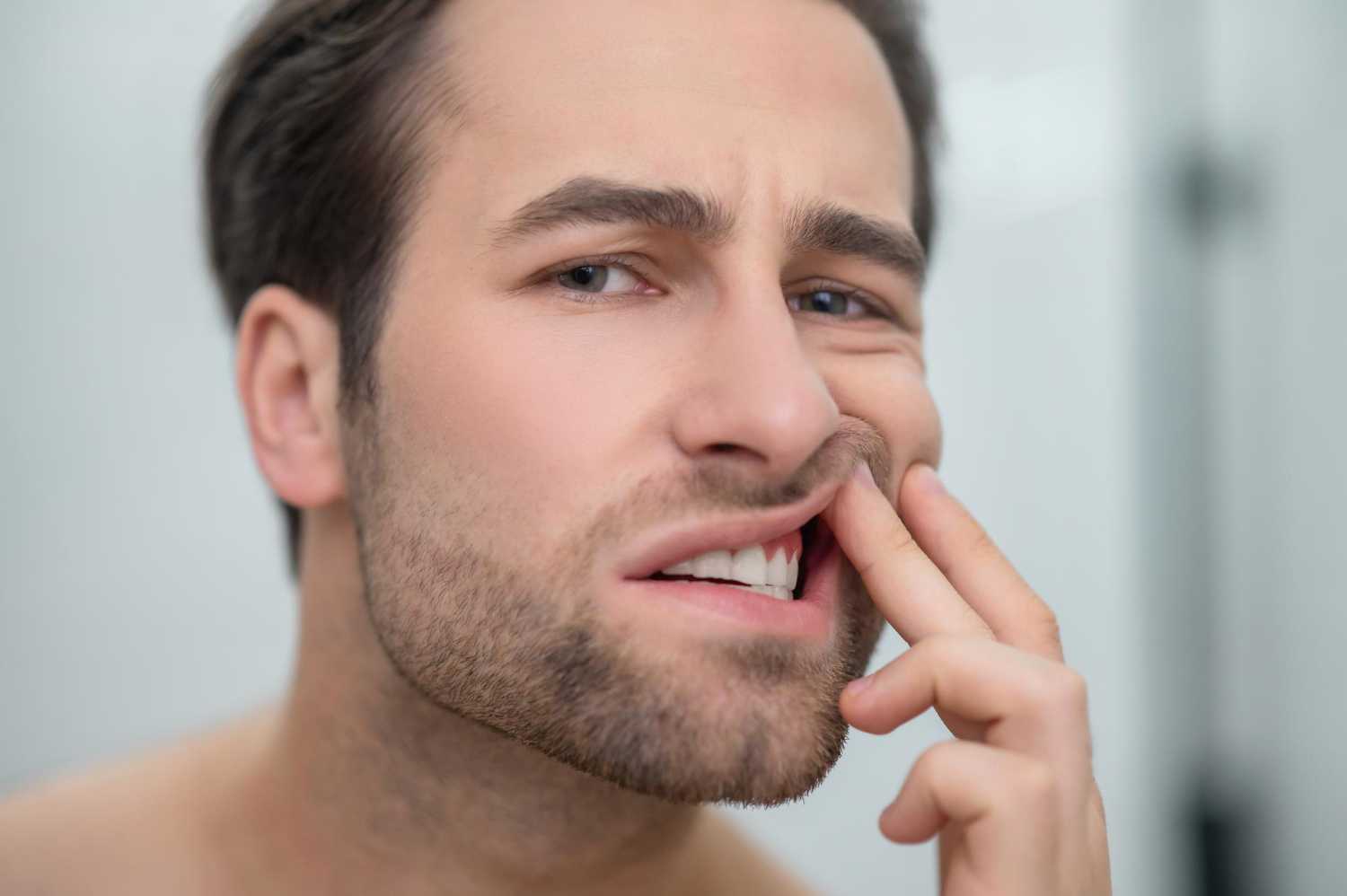Ever found yourself starting the day with a sore jaw, a lingering headache, or the odd feeling that your teeth have been ground down overnight? You could be grinding or clenching your teeth without even knowing it. Teeth grinding/ clenching, medically known as bruxism, is much more common than most people realise.
Here’s all you need to know about bruxism and how it can affect your daily life.
An occasional grind or clench may not cause much harm, but frequent or severe clenching and/or grinding can damage your teeth and impact your overall health.
Let’s take a closer look at the causes, warning signs, and effective solutions.
What Causes teeth grinding and/or teeth clenching?
Bruxism doesn’t have a single cause. Most of the time, it’s brought on by several causes working together.
1. Stress and Anxiety
Stress is one of the most common reasons people grind or clench their teeth, especially at night. When your mind is restless, your body often reacts physically, and jaw clenching is a frequent response.
2. Sleep Disorders
People with sleep issues such as sleep apnea or frequent snoring are more prone to teeth grinding/clenching. The interruptions in breathing can trigger muscle activity, including clenching.
3. Lifestyle Habits
Excessive caffeine, alcohol, or tobacco use can increase the likelihood of grinding. These stimulants over-activate your nervous system, even when you’re asleep.
4. Bite or Jaw Alignment Issues
Sometimes, the way your upper and lower teeth meet can naturally cause clenching or grinding. An uneven bite or crooked teeth can put extra pressure on certain areas.
5. Medications
Certain antidepressants and other medications have side effects that include bruxism. If jaw pain started after beginning a new prescription, the medication might be the cause.
Signs You Might Be Grinding Your Teeth
Since most teeth grinding/clenching / Clenching (Bruxism) occurs while you’re asleep, many people are unaware they have the habit. That’s why being aware of the symptoms is so important.
- Worn, chipped, or flattened teeth: A clear sign of repeated grinding.
- Jaw pain or tightness: You may feel soreness in your jaw, especially on waking in the morning or even during the day, difficulty opening your mouth fully.
- Headaches: Particularly in the morning, often caused by muscle strain from clenching overnight.
- Tooth sensitivity: Grinding/ clenching can wear down enamel, leaving teeth more sensitive to hot and cold.
- Sleep disruption: Your partner may notice grinding sounds during the night.
Ignoring these signs can lead to serious problems like fractured teeth, gum recession, and even changes in your facial structure over time.
How to Stop Grinding Your Teeth
The positive part is that teeth grinding/clenching can be controlled. Solutions usually involve addressing both the symptoms and the root cause.
1. Stress Management
Since stress is often the main trigger, finding ways to relax is essential. Practicing meditation, yoga, or following a relaxing bedtime routine can help ease clenching/ grinding at night.
2. Night Guards
Dentists often recommend wearing a custom- made night guard, called an occlusal splint. Even though grinding continues, your teeth remain protected thanks to the barrier it creates.
3. Correcting Dental Problems
If your grinding is caused by misaligned teeth, orthodontic treatment may help. Adjusting your bite can relieve uneven pressure on your jaw.
4. Lifestyle Changes
Cutting back on caffeine, alcohol, and smoking can make a noticeable difference. Also, avoid chewing gum or biting on pens; these habits train your jaw muscles to stay tense.
5. Medical Treatment
In severe cases, your dentist or doctor might suggest muscle relaxants before bedtime or refer you to a sleep specialist. For some, cognitive behavioural therapy (CBT) also helps by tackling the stress and anxiety at the root of the problem.
Stop Teeth Grinding Before It Hurts – Gentle and Caring Dentistry Can Help
Teeth grinding or clenching may seem like a harmless habit, but over time, it can cause significant damage to your oral health and overall well-being. The key is early recognition and timely action. If you notice signs such as a sore jaw, frequent headaches, or worn-down teeth, don’t ignore them. A visit to Gentle and Caring Dentistry in Maroubra can help identify the problem early and provide the right solutions tailored to your needs.
Taking care of your teeth is not just about brushing and flossing — it’s also about protecting them from unconscious habits like grinding. In many cases, this means using a custom-made, custom-fitted night guard, designed specifically to be worn while you sleep, to protect against clenching and grinding. Addressing the problem now will save you from bigger challenges in the future.



